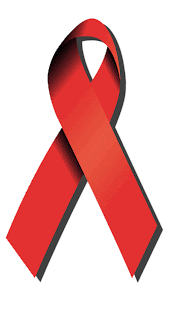
Am a little too late for the World AIDS Day, but it's never too late for the awareness. Here's some facts about HIV.
What is HIV?
HIV is a virus that attacks the body's immune system - the body's defence against diseases. The latest research suggests that between 70 and 90 per cent of people may experience symptoms of infection a few days after having been infected. Three symptoms occurring together: fever, rash and a severe sore throat should always be considered a potential indicator of HIV infection. These symptoms usually disappear within two or three weeks. Other people may not have symptoms to start with. In all cases, without effective treatment the immune system will eventually become very weak and no longer be able to fight off illnesses.
Are HIV and AIDS the same?
No. When someone is described as living with HIV, they have the HIV virus in their body. A person is considered to have developed AIDS when the immune system is so weak it can no longer fight off a range of diseases with which it would normally cope.
How is HIV passed on?
HIV can be passed on through infected blood, semen, vaginal fluids or breast milk. The most common ways HIV is passed on are:
- Sex without a condom with someone living with HIV
- Sharing infected needles, syringes or other injecting drug equipment
- From an HIV-positive mother (to her child) during pregnancy, childbirth or breastfeeding


No comments:
Post a Comment